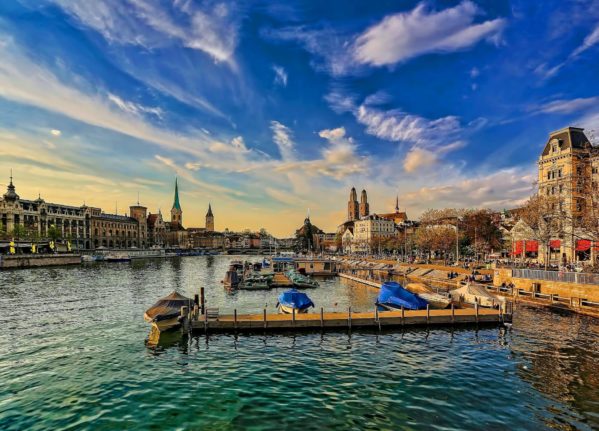A total of 23.35 percent of people employees Germany, or 9.3 out of 39.8 million, earn less than €14 an hour, according to new figures published at the request of the Die Linke (Left Party) faction in the Bundestag.
Around 14.8 percent of employees in Germany are particularly low earners, as they only bring in the minimum wage of €12 an hour.
In light of the figures, Linke chairman Dietmar Bartsch called for an increase in Germany’s minimum wage.
“If every fourth person in Germany earns less than €14 per hour, the wage level in Germany is clearly too low,” he said. “A €14 minimum wage would now be necessary – also to compensate for inflation.”
Though the steep rises in the cost of living have slowed slightly in recent months, inflation is currently at around 6.1 percent and peaked at over 10 percent last year.
A new minimum wage for Germany?
Fulfilling an electoral pledge of the Social Democrats (SPD), Germany’s coalition government increased the minimum wage to €12 last year.
At the end of June, the Minimum Wage Commission proposed increasing the minimum wage to €12.41 per hour as of January 1st, 2024 and to €12.82 at the beginning of 2025.
But in the face of inflation and rising costs of living, Bartsch called such an increase a “dramatic loss in real wages”.
In June, Stefan Körzell, a board member of the German Trade Union Confederation (DGB) and a member of the Minimum Wage Commission, criticised the proposed minimum wage increase, stating that a “mere cent-range adjustment” was unacceptable.
Körzell argued that the nearly six million minimum wage workers would suffer a significant real wage loss and emphasised that the minimum wage should have been raised to at least €13.50 to provide adequate protection and to offset inflation.
READ ALSO: Why Germany’s proposed minimum wage increase has been called a scandal
A pension problem?
Bartsch added that low wages will mean than many people don’t have enough to live on when they reach retirement age, which currently varies based on age. For those born after 1967, it’s set to go up to 67 years.
“The low wage level will also backfire on us when it comes to pensions,” he said.
There is a risk of “millions of cases of old-age poverty”, said Bartsch, pointing out that Germany’s pension fund is already losing many billions due to low wages.
There are currently around 21 million pensioners in Germany, making up a quarter of the population – and according to the Federal Office of Statistics, the largest cohort of workers is currently aged 55-60. By 2035, most of these working adults will be 70 or over.
While working-age people currently outnumber pensioners by a ratio of three to one, this is expected to narrow to three to two by 2060.
Soon more people than ever will be withdrawing from the pension pot, and it’s unclear whether the contributions of working-age people will be able to keep up.
READ ALSO: How long do you have to work to receive a German pension?
Vocabulary
Minimum wage – (der) Mindestlohn
Low wages – (die) geringe Löhne
Old-age poverty – (die) Altersarmut
Inflation – (die) Inflation/(die) Teuerung
Pension fund – (die) Rentenkasse
We’re aiming to help our readers improve their German by translating vocabulary from some of our news stories. Did you find this article useful? Let us know.





 Please whitelist us to continue reading.
Please whitelist us to continue reading.
Member comments